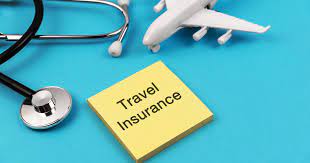Planning a trip is always exciting. Whether it’s a business trip or a dream vacation, the anticipation of new experiences can be thrilling. But have you ever stopped to think about what could go wrong? Lost luggage, medical emergencies, or trip cancellations can turn your dream journey into a nightmare. This is where travel insurance steps in, acting as your passport to safety. Let’s dive into the world of travel insurance and see why it’s an essential part of your travel planning.
What is Travel Insurance?
Definition and Overview
Travel insurance is a type of insurance designed to cover various risks associated with traveling. It can cover medical expenses, trip cancellations, lost luggage, flight accidents, and other losses incurred while traveling, either internationally or domestically.
Types of Travel Insurance
There are different types of travel insurance policies available to cater to different needs:
- Single-trip insurance: Covers one trip, from the start date to the end date.
- Multi-trip insurance: Ideal for frequent travelers, covering multiple trips within a specific period, usually a year.
- Comprehensive insurance: Offers a wide range of coverage, including medical expenses, trip cancellation, and lost luggage.
The Coverage of Travel Insurance
Medical Coverage
One of the primary benefits of travel insurance is medical coverage. If you fall ill or get injured while traveling, your travel insurance can cover medical expenses, hospital stays, and even medical evacuation if necessary. This is crucial, especially when traveling to countries with high medical costs.
Trip Cancellation and Interruption
Life is unpredictable. You might need to cancel your trip due to unforeseen circumstances like illness, a family emergency, or natural disasters. Travel insurance can reimburse you for non-refundable expenses like flight tickets and hotel bookings.
Baggage Loss and Delay
Imagine arriving at your destination only to find that your luggage is lost or delayed. Travel insurance can provide compensation for lost baggage and cover the cost of essential items you need to buy until your luggage is found.
Emergency Evacuation
In case of severe health issues or political unrest, travel insurance can cover the cost of emergency evacuation to the nearest safe location or back to your home country.
Why Travel Insurance is Essential
Unforeseen Circumstances
No one can predict what might happen during a trip. Natural disasters, political unrest, or personal emergencies can disrupt your travel plans. Travel insurance acts as a safety net, ensuring that you’re not left stranded or financially burdened by such events.
Peace of Mind
Knowing that you’re covered in case of emergencies allows you to enjoy your trip without constant worry. Travel insurance provides peace of mind, making your journey more enjoyable.
How to Choose the Right Travel Insurance
Assessing Your Needs
Before purchasing travel insurance, assess your needs. Consider the length of your trip, the activities you’ll be engaging in, and your health condition. This will help you choose a policy that provides adequate coverage.
Comparing Policies
Don’t settle for the first policy you come across. Compare different policies, check their coverage, exclusions, and premiums. Read reviews and ask for recommendations to find a reliable insurer.
Travel Insurance vs. Car Insurance
Key Differences
Travel insurance and car insurance serve different purposes. While travel insurance covers risks related to travel, car insurance covers risks related to your vehicle. Car insurance is mandatory in many places, while travel insurance is often optional but highly recommended.
Coverage Comparison
Car insurance typically covers damages to your vehicle, liability for damages to others, and medical expenses resulting from car accidents. Travel insurance, on the other hand, covers a broader range of risks, including medical emergencies, trip cancellations, and lost luggage.
Travel Insurance vs. Employee Health Insurance
Understanding the Scope of Each
Employee health insurance usually covers medical expenses within your home country and sometimes includes limited coverage for international travel. However, it may not cover trip cancellations, lost baggage, or emergency evacuation.
Which One Covers What?
Travel insurance complements your employee health insurance by covering risks specific to travel. While your health insurance covers medical expenses, travel insurance covers additional risks like trip cancellations and lost luggage.
Common Myths About Travel Insurance
Travel Insurance is Too Expensive
Many people believe that travel insurance is a costly addition to their travel budget. However, the cost of travel insurance is often a small fraction of your total trip expenses, and the peace of mind it offers is invaluable.
It’s Only for Long Trips
Travel insurance is beneficial for trips of any length. Even a short weekend getaway can face unexpected disruptions, making travel insurance a wise investment.
Tips for Filing a Travel Insurance Claim
Document Everything
Keep all receipts, medical reports, and other relevant documents. They will be crucial when filing a claim.
Contact Your Insurer Immediately
Notify your insurer as soon as possible after an incident. Prompt communication can speed up the claims process.
How Travel Insurance Can Save Your Trip
Real-life Scenarios
Consider the case of Sarah, who fell ill during her trip to Japan. Her travel insurance covered her medical expenses and even arranged for her medical evacuation back home. Without travel insurance, Sarah would have faced a hefty medical bill and logistical nightmare.
Testimonials
Many travelers have shared positive experiences with travel insurance. From reimbursed trip cancellations to covered medical emergencies, these stories highlight the importance of having travel insurance.
Conclusion
Travel insurance is your passport to safety, providing essential coverage for a variety of travel-related risks. It offers peace of mind, allowing you to enjoy your journey without constant worry. Whether you’re planning a short trip or a long vacation, travel insurance is a wise investment that ensures you’re prepared for the unexpected.
Frequently Asked Questions (FAQs)
Is travel insurance mandatory?
No, travel insurance is not mandatory, but it is highly recommended for all travelers to protect against unexpected events.
Can I buy travel insurance after booking my trip?
Yes, you can buy travel insurance after booking your trip, but it’s best to purchase it as soon as you make your travel arrangements.
Does travel insurance cover pre-existing conditions?
Some policies offer coverage for pre-existing conditions, but it often comes with additional costs or specific requirements. Always read the policy details carefully.
How much does travel insurance cost?
The cost of travel insurance varies based on factors like trip length, destination, and coverage. On average, it can range from 4% to 10% of your total trip cost.
What should I look for in a travel insurance policy?
Look for comprehensive coverage that includes medical expenses, trip cancellations, lost luggage, and emergency evacuation. Read the policy exclusions and ensure it meets your specific travel needs.
Thanks for visiting 1st-street






